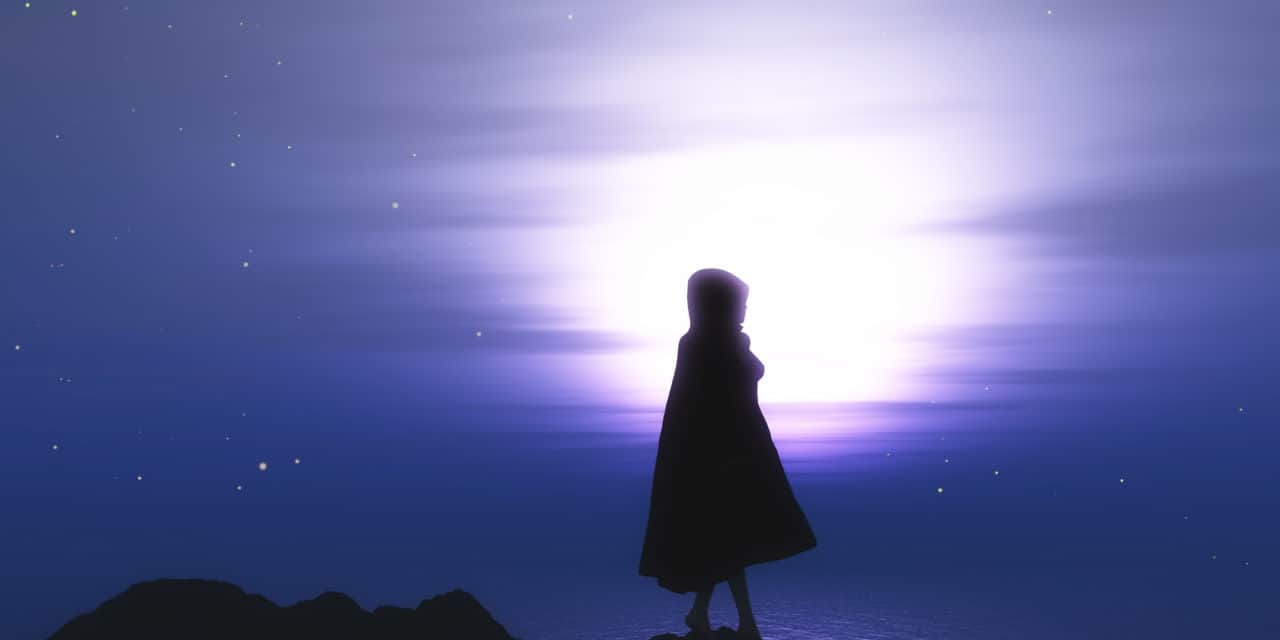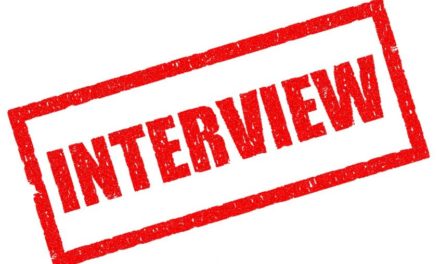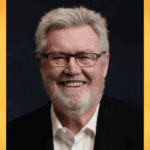ROBERT Harris is troubled. Not an anxious person by nature, while working on his new novel he found himself waking in the early hours of the morning, unable to sleep again until just before dawn. The resulting book is an apocalyptic read.
A future-history thriller set eight centuries after the collapse of our current civilisation, its people reduced to a medieval level of existence; fearful, barbaric and ruled by a resurgent, fundamentalist Church. All in all, it’s no wonder writing The Second Sleep – its title recalling the habit of people in pre-industrial times of sleeping twice during the night, with an hour or so awake in between – caused the best-selling Fatherland author some disturbed nights. They might have ended but his concerns about our current society’s direction endure. “Something to do with social media and the world around us has started to make me feel quite edgy,” Harris admits.
“There’s a sort of vibration of anxiety in the air, partly Brexit-related but also beyond that because it’s a worldwide phenomenon.
“Of all my novels, this is the one that got under my skin the most. I’ve always been a sound sleeper but for the first time I started replicating this double sleep pattern myself.”
As with all Harris’s books, The Second Sleep is thought-provoking and thrilling in equal parts.
It feels unerringly timely, coming in the age of Donald Trump, ongoing uncertainty over Brexit and the rise of increasingly divisive social media.
“I think it’s mainly to do with this extraordinary revolution we’ve been through with social media and the transformation of so much of life and the economy to the digital world,” he says.
“We’re turning ourselves into feeble creatures. We rely upon the machine to do our breathing and everything for us. If something went wrong with it, one worries we’d be quite helpless.”
He likes to cite the case of his own father, a Nottingham printer born in the 1920s, who could strip a car engine down, repair it and put it back together, to demonstrate how detached we have become from the technology that supports our society.
“It’s one of the paradoxes in the novel that we think of ourselves as hugely advanced but if something was to happen we’d leave behind very little. Most of our structures, even the great skyscrapers in London, wouldn’t last for much more than a century,” he says.
“All that would be left would be a great morass of plastics, nappies and straws and styrofoam cups.”
As for the title of his 13th book, Harris, 62, explains: “It seemed to be a perfect metaphor for the society I was trying to describe, that we’d gone into, as it were, a midnight phase.
“I’m very interested in archaeology, the way we see the past, and it struck me that it might be interesting to write about archaeologists looking back at our own civilisation and what they’d make of it.
“That was the seed and it took about five or six years for it to eventually resolve itself into a novel.”
The former political journalist and columnist became a full-time writer after the worldwide success of his first novel, Fatherland, in 1992.
That book imagined a world where Germany had won the Second World War. Razor-sharp, mixing well-researched detail with leaps of imagination, it set a template for his following novels, including Enigma, featuring the Bletchley Park code-breakers, Pompeii about the catastrophic eruption of Vesuvius in 79AD, and most recently Munich, turning the doomed attempts to prevent Europe sliding into the Second World War into a gripping thriller.
The Second Sleep is Harris’s most imaginative book, he concedes, in that it’s not based on any particular work of history or reference.
“It’s come out of my own head. In that sense it’s different. In another sense it’s a reworking of all these themes that I’ve concentrated on for the past 30 years – the past and future meeting.
“Books like Pompeii are about an ancient civilisation and its remarkable similarities to the modern world, this sense that human beings don’t really change very much over thousands of years – what changes is the society and technology around them.”
In the new book, the action takes place in and around a remote Exmoor village and its protagonist, Christopher Fairfax, a young priest, is a typical Robert Harris hero, an ordinary man who finds strength in adversity, in this case pursuing a forbidden relationship and defying his superiors.
“I’m not interested in macho superman types at all, I’m interested in flawed people who get put into extraordinary situations and somehow try to cope,” he explains.
Harris is not religious, describing himself as agnostic rather than atheistic.
He says: “I don’t have the arrogance to believe I am in possession of all the facts to make a judgment. It’s enough for me that Einstein also wasn’t an atheist and thought that something might lie behind the Theory of Relativity.
“One becomes a two-dimensional human being if one refuses to acknowledge a spiritual dimension but I wouldn’t necessarily turn that into a belief in biblical truth or indeed the truth of any religion.”
Among his best-loved books are his critically-acclaimed Cicero trilogy, bringing the Roman empire’s greatest orator to life.
Now he feels the art of clever rhetoric, lively disagreement and constructive conversation has been badly undermined.
“It’s an age of anxiety and an age of extremes, it’s an age of loud shouting on social media and false certainties,” he explains.
“You can hardly think of something more calculated to drive a young person crazy than that which lets them see all the parties to which they’ve not being invited. That sense you have, especially when you’re younger, that you’re being excluded, social media amplifies hugely.
“It’s no accident that most of the real kings of Silicon Valley won’t actually let their own children access the internet because of the dangers of it. It’s like a mental crack cocaine.”
An occasional user of Twitter, he believes the social media giant “oversimplifies complex issues and over-dramatises differences” – and is being weaponised, in all likelihood by foreign governments, to sow discord in western democracies.
“The new vice, is the willingness to take offence, even over things that don’t necessarily concern you, if you feel outraged,” he says.
“Thus you get the Twitter mob, the hanging mob turning on someone and destroying them. Conversations become much more explosive than they used to be years ago.
“You don’t have to be on Twitter long before you realise you’re being attacked by lots of people with zero followers. “It looks like a great wave of protest, but suspiciously well organised.”
Will the technology giants ever be brought to heel?
Harris is sceptical: “They’re so rich and powerful that they’re almost beyond the law, but it may reach a pitch when our democracy, our institutions and our own mental well-being are under such assault that there will be a movement to restrict and control social media.”
But politics and the media are not the only institutions influenced negatively by the digital revolution, he says.
“Not to be alarmist but look around, the world economy has shifted to information and it’s highly vulnerable.
“Without wishing to be scaremongering, I genuinely believe a breakdown in the cyber world, whether caused by warfare or a solar flare, is a huge threat, greatly underestimated.”
While his new book does not reveal the cause of the apocalypse that decimated humanity, Harris points to two crises in recent British history that demonstrate how society might start to unravel.
One was the tanker drivers’ dispute in 2000, when a relatively small number of protesters were able to cause paralysing panic buying.
The other was the 2008 financial crash when it was touch and go whether cash machines would work if the banking system collapsed.
“That is even more of a problem now as High Street banks are closing at a rate of more than 1,000 a year,” he says.
“Down in the country where I live, there are hardly any left. So if something happened to the ATM system, how would you get hold of money? And if you don’t have money, how do you get hold of anything else?”
Asked about his own preparedness for apocalypse, Harris is endearingly frank, admitting to having bought a wood-burning stove for the home he shares in Kintbury, Berks, with his wife, the novelist Gill Hornby.
“I live in the country so I could at least burn a bit of wood to cook,” he laughs. “I use it now for barbecues but if something does happen, if the predictions in the book even come partly true, it’d be useful to have some way of cooking.”
He insists he is not advocating people “filling their garden sheds” with food tins, rather working out if they could survive a week or two without the beneficence of a supermarket.
“That’s what people used to do. It’s prudent. But we live in an age of Deliveroo and apps and Ocado and we’re used to having supermarket shelves stacked high with exotic foreign foods. It’s all a Potemkin Village – it looks plentiful and prosperous but actually our food is all on lorries.”
For now, despite deep political uncertainty, life goes on. Harris is on the road promoting his book, supermarkets remain well-stocked and society continues to tick along. As for the novelist, he’s keen to get back to his writing, describing it as “a compulsion” since childhood.
“I hate not writing a book. It’s never been a job. My whole life has been a desire to escape having a job and employer.”
Let’s hope the next one doesn’t give him –or his millions of readers – such sleepless nights.










